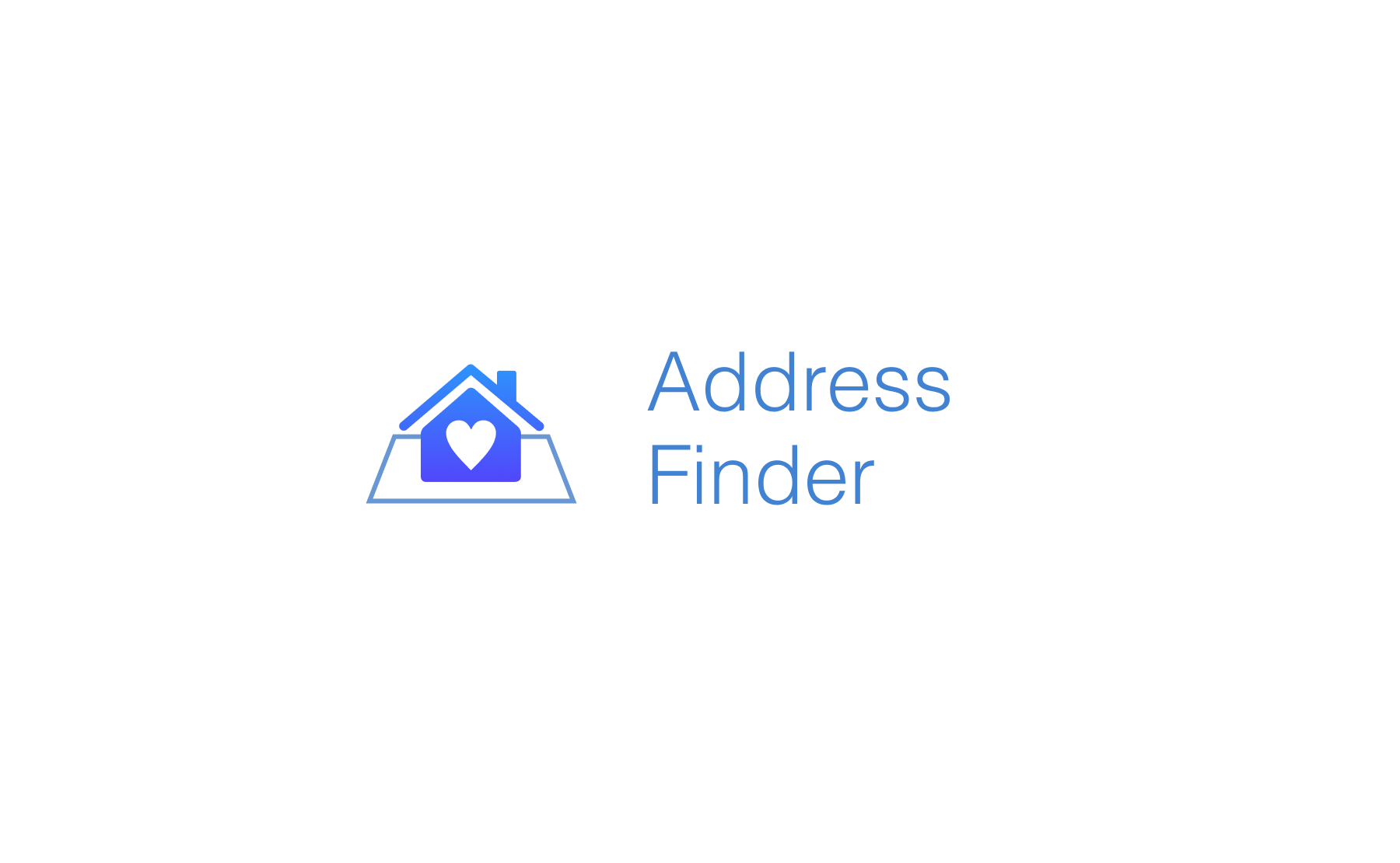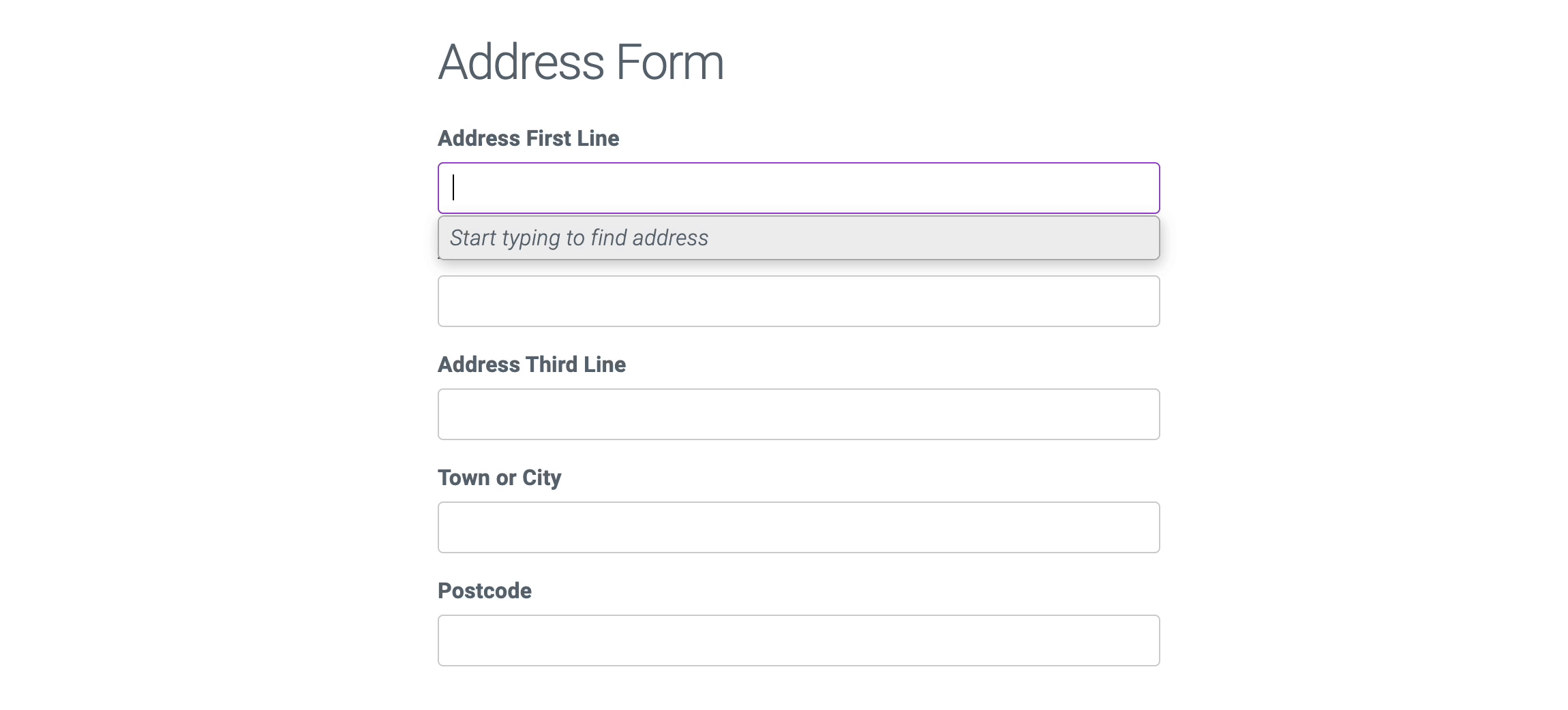
Security News
The Push to Ban Ransom Payments Is Gaining Momentum
Ransomware costs victims an estimated $30 billion per year and has gotten so out of control that global support for banning payments is gaining momentum.
@ideal-postcodes/address-finder
Advanced tools
Readme

Find and autocomplete addresses with Address Finder
@ideal-postcodes/address-finder is a JavaScript library that delivers address autocomplete (or adress typeahead) search functionality on a webpage.
This package should be consumed by a bundler or transpiler (e.g. webpack, parcel, rollup) for minification, module resolution and specific browser support.
For a pre-bundled version of address-finder (minified, transpiled, polyfilled, etc) that can immediately be dropped on a webpage, use address-finder-bundled.

Add address-finder to your project via npm
npm install @ideal-postcodes/address-finder
Instantiate Address Finder with AddressFinder.setup.
import { AddressFinder } from "@ideal-postcodes/address-finder";
const controller = AddressFinder.setup({
inputField: "#line_1", // Target <input> to host Address Finder
apiKey: "iddqd", // API Key from your account
outputFields: { // Target address fields
line_1: "#line_1",
line_2: "#line_2",
line_3: "#line_3",
post_town: "#post_town",
postcode: "#postcode",
},
});
It's also possible to pass HTMLElements as inputField or outputFields.
AddressFinder.setup({
inputField: document.getElementById("line_1"),
outputFields: {
line_1: document.getElementById("line_1"),
},
apiKey: "iddqd",
});
After instantiating Address Finder, it is possible to toggle availability with the .detach() and .attach() methods.
// Removes Address Finder from DOM and clears event listeners
controller.view.detach();
// Restores Address Finder to the DOM and start event listeners
controller.view.attach();
A complete list of quick integration examples can be found at ideal-postcodes.co.uk/address-finder-demo
Address Finder expects you to address inputs on the page ready to be populated.
When an address is select, the addressing data will be piped to those address inputs designated in output_fields. For instance line_1: "#line_1" will write Address Line One data to a HTML entity with ID line_1.
Assigning the 3 address line, post town and postcode fields, is all addressing information required to identify a UK premise. You may extract more data for an address by passing more properties into the output_fields configuration object.
The configuration attributes for outputFields matches the Address response object. E.g. street name can be populated can be populated using the thoroughfare attribute. A list of address attributes provided by the API can be found at @ideal-postcodes/api-typings.
More information on addressing data can be found on our data documentation.
For more sophistated behaviour when a user selects an address, you can hook into the onAddressRetrieved callback and implement customised behaviour there.
The Address Finder's default CSS stylesheet can be found in the css/ directory of this repository.
The Address Finder view CSS is structured in the following way:
<div> with a default class of idpc_autocomplete<ul> list with a default class of idpc_ul<li> with a default class of idpc_errorDefault CSS classes can be overridden. For instance, containerClass, listClass and messageClass are all defined in defaults.
injectStyleSet injectStyle: true to inject default Address Finder style into DOM. Defaults to false.
Set to a URL (e.g. injectStyle: "https://cdn.jsdelivr.net/npm/@ideal-postcodes/address-finder@1.2.1/css/address-finder.min.css") to retrieve a CSS stylesheet.
Default messages (e.g. "Start typing to find address", "No matches found") can be overridden. For instance, msgFallback, msgInitial and msgNoMatch.
AddressFinder.setup() accepts a single configuration object and returns the Address Finder controller instance.
Below is the list of parameters you can use to modify Address Finder.
A complete list of configuration options can be found in the library documentation
inputFieldCSS selector or HTML Element which specifies the <input> field which the Address Finder interface should bind
apiKeyAPI Key from your Ideal Postcodes account. Typically begins ak_
outputFieldsSpecify where to send address data given a selected address. A object which maps an address attribute to the CSS selector of an input field or HTMLElement like HTMLInputElement or HTMLTextAreaElement.
{
line_1: "#line_1",
line_2: "#line_2",
line_3: "input[name='line_3']",
post_town: document.getElementById("post_town"),
postcode: document.getElementById("postcode")
}
The configuration attributes for outputFields matches the Address response object. E.g. street name can be populated can be populated using the thoroughfare attribute. A list of address attributes provided by the API can be found at @ideal-postcodes/api-typings.
More complex, dynamic assignment can be performed using the onAddressRetrieved callback.
Output fields assigned with a query selector are evaluated lazily (i.e. when an address attribute needs to be piped to a field).
checkKeyIf enabled, the plugin will check if the key is in a usable state before initialising itself.
The check can fail if:
If the check fails, the plugin will not initialise. You can use the onFailedCheck callback to customise your response to a failed check.
titleizePostTownAn optional field to convert the case of the Post Town from upper case into title case. E.g. "LONDON" becomes "London". Default is true
removeOrganisationIf set to true, organisation name will be removed from the address.
Note that addresses which are exclusively an organisation name will not result in the organisation name being removed as this will result in no premise identifier.
Defaults to false.
Address Finder also provides callbacks which let you hook into specific events in the controller lifecyle.
onLoadedInvoked when Address Finder has been successfully attached to the input element.
onFailedCheckA function invoked if checkKey is enabled and the check fails.
onSuggestionsRetrievedInvoked immediately after address suggestions are retrieved from the API. The first argument is an array of address suggestions.
onAddressSelectedInvoked immediately after the user has selected a suggestion (either by click or keypress). The first argument is an object which represents the suggestion selected.
onAddressRetrievedInvoked when the Address Finder client has retrieved a full address from the API following a user accepting a suggestion. The first argument is an object representing the address that has been retrieved.
onSearchErrorInvoked when an error has occurred following an attempt to retrieve a full address. In this scenario the user will also receive a message to manually input their address.
The first argument is an error instance (i.e. inherits from Error) representing the error which has occurred.
Examples of errors includes "lookup balance exhausted" and "lookup limit reached" errors.
onSuggestErrorInvoked when an error has occurred following an attempt to retrieve suggestions for a key press. In this scenario the user will also receive a message to manually input their address.
The first argument is an error instance (i.e. inherits from Error) representing the error which has occurred.
Examples of errors includes "lookup balance exhausted" and "lookup limit reached" errors.
onOpenInvoked when Address Finder suggestion box is opened (i.e. presented to the user).
onBlurInvoked when the user unfocuses from the address input field.
onCloseInvoked when Address Finder suggestion box is closed (i.e. hidden from user).
onFocusInvoked when user selects or focuses address input field.
onInputInvoked when user selects or focuses address input field.
onSelectInvoked when an address suggestion in suggestion box is selected.
GNU Affero General Public License v3.0
FAQs
Address Finder JS library backed by the Ideal Postcodes UK address search API
We found that @ideal-postcodes/address-finder demonstrated a healthy version release cadence and project activity because the last version was released less than a year ago. It has 3 open source maintainers collaborating on the project.
Did you know?

Socket for GitHub automatically highlights issues in each pull request and monitors the health of all your open source dependencies. Discover the contents of your packages and block harmful activity before you install or update your dependencies.

Security News
Ransomware costs victims an estimated $30 billion per year and has gotten so out of control that global support for banning payments is gaining momentum.

Application Security
New SEC disclosure rules aim to enforce timely cyber incident reporting, but fear of job loss and inadequate resources lead to significant underreporting.

Security News
The Python Software Foundation has secured a 5-year sponsorship from Fastly that supports PSF's activities and events, most notably the security and reliability of the Python Package Index (PyPI).